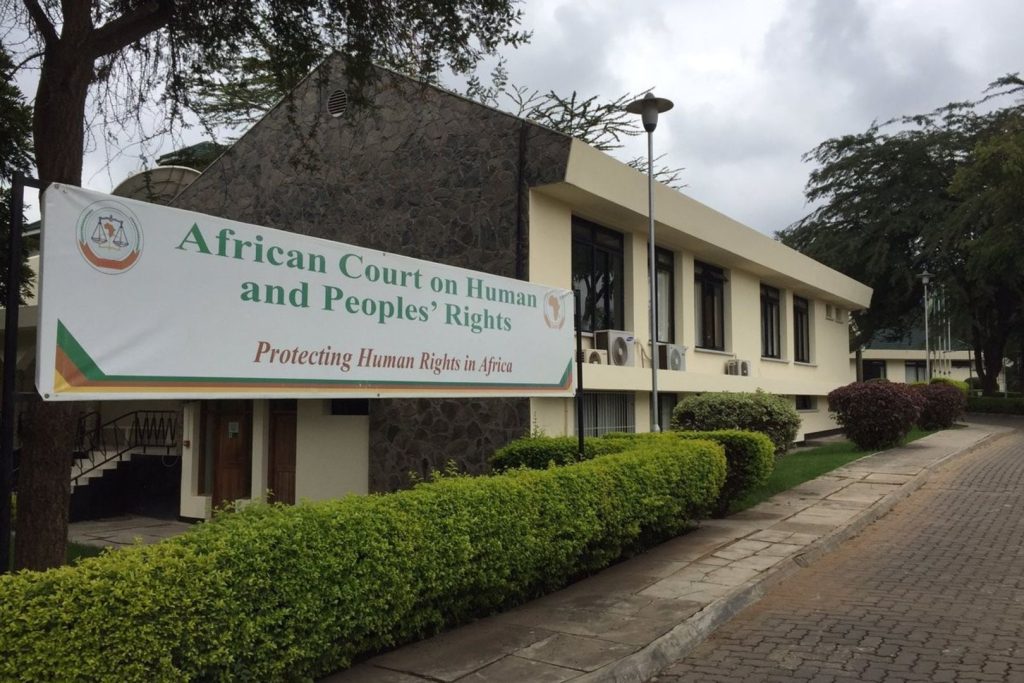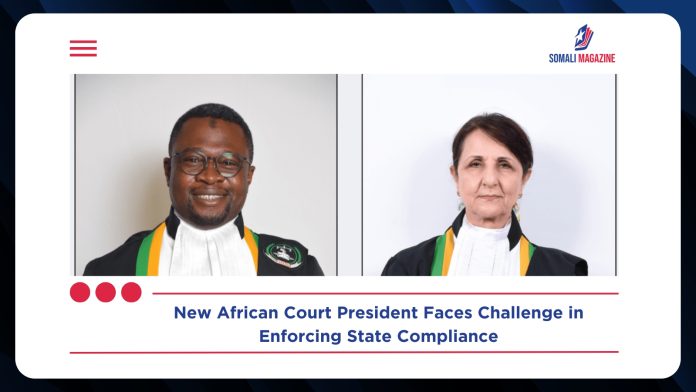Facebook Twitter (X) Instagram Somali Magazine - People's Magazine
The newly elected President of the African Court on Human and Peoples’ Rights, Justice Modibo Sacko, is facing a critical challenge in ensuring that African states comply with the Court’s rulings. As he assumes leadership, Sacko is tasked with addressing longstanding concerns over the enforcement of judicial decisions, a persistent issue that has hindered the Court’s effectiveness in protecting human rights across the continent.
The African Court, headquartered in Arusha, Tanzania, was established to uphold human rights and provide legal recourse for individuals and organizations. However, despite its mandate, many African governments have either ignored or selectively implemented its rulings, raising concerns about the Court’s authority. Sacko, who previously served as Vice President, has pledged to strengthen mechanisms that compel states to adhere to judicial decisions, emphasizing that compliance is essential for the credibility of the institution.
One of the key obstacles Sacko faces is the reluctance of some governments to recognize the Court’s jurisdiction. While 34 African Union member states have ratified the Court’s protocol, only eight have submitted declarations allowing individuals and NGOs to file cases directly. This limitation has restricted access to justice for many victims of human rights violations. Sacko has vowed to push for broader ratification and encourage states to uphold their commitments under international law.

Legal experts argue that the Court must adopt a more assertive approach in enforcing its rulings, including leveraging diplomatic pressure and regional partnerships. The African Union’s role in supporting the Court’s decisions has been inconsistent, with some member states openly defying judgments. Sacko is expected to engage AU leadership to establish stronger enforcement mechanisms, ensuring that rulings are not merely symbolic but lead to tangible legal outcomes.
The issue of state compliance has been particularly evident in cases involving political repression, electoral disputes, and press freedom. Several governments have dismissed rulings that challenge their policies, citing sovereignty concerns. Sacko’s leadership will be tested in navigating these political sensitivities while advocating for judicial independence and human rights protection.
As the African Court enters a new phase under Sacko’s presidency, the effectiveness of his strategies will determine whether the institution can overcome its enforcement challenges. Strengthening legal frameworks, enhancing cooperation with regional bodies, and increasing public awareness of the Court’s role will be crucial in ensuring that African states respect judicial decisions.

